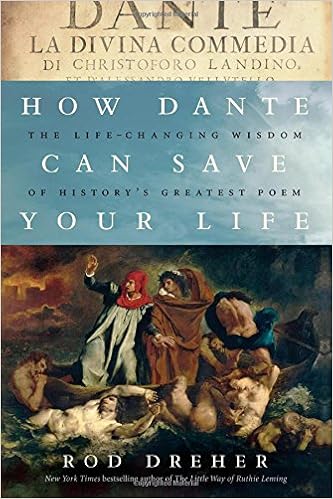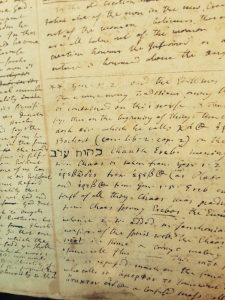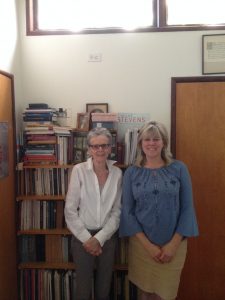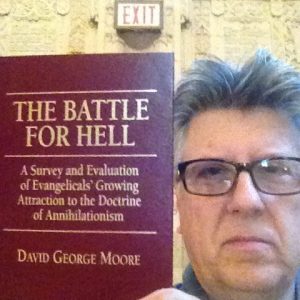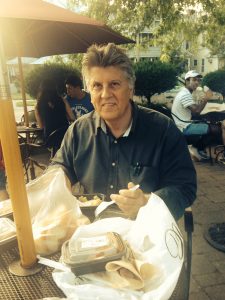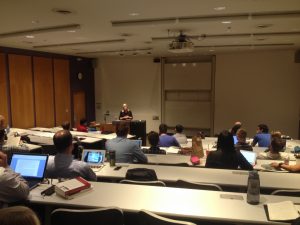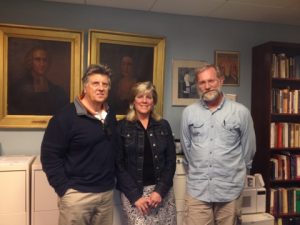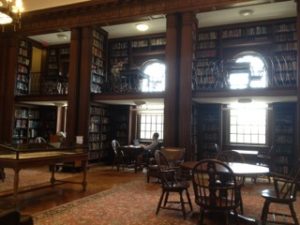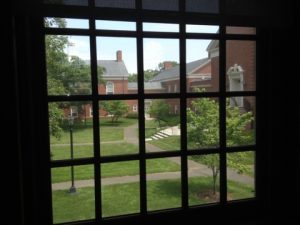Chris Armstrong is a historian who serves as the founding director of Opus: The Art of Work, an institute on faith and vocation at Wheaton College.
The following interview centers around Armstrong’s terrific new book, Medieval Wisdom for Modern Christians: Finding Authentic Faith in a Forgotten Age with C.S. Lewis.
Moore: Many will be surprised to see medieval and modern juxtaposed in such a favorable way. Shouldn’t we Protestants move past the superstitions of the Middle Ages?
Armstrong: Well, I just disagree with the premise. So let me answer this way: The superstitions we need to move past are our own modern ones. I take “superstition” to refer to any kind of magical thinking that makes connections between causes and effects where there is in fact no demonstrable connection. Just one example will have to do here: many still believe, against overwhelming evidence, that rational ideologies will work better than traditional arrangements in the realm of statecraft.
What else can we call this but superstition or magical thinking, when this principle of rational ideology has resulted in 20 million killed in WWI, 65-80 million killed in WWII—including upwards of a quarter of a million annihilated by the dropping of atomic bombs on Hiroshima and Nagasaki—plus possibly as many as 85M – 100M killed under the Communists’ attempt to rationalize national life? This is just an extreme example of the case made by James Davison Hunter, that the belief that all our public problems will be solved when the right ideas are accepted and acted upon through political process is not Christian and it is not even truly rational—however much we (modern American Christians) want it to be. This, too, is an instance of magical thinking or “superstition.” It is a belief that does not comport with reality.
Now, were there abominable crusades, inquisitions, and thumbscrews in the Middle Ages—an era which believed that our ultimate answers are to be found not in rationalist political ideologies but in the revelations of an invisible God who came to earth as a human and lived and then died and then lived again? Certainly. Did those sinful errors of a society attempting to “live unto God” cause devastation on anything like the scale of modern superstitions such as those named above? No – not even close. And at the same time, the Middle Ages birthed the hospital and all its associated modes of medical charity; the university and its institutionalized pursuit not only of knowledge but of wisdom for living; the framework of what would become the scientific revolution (by individual believers studying to “think God’s thoughts after him”), and so much more that has blessed us even up to this minute.
Nobody’s hands are clean here, but when “superstition” caused more devastation in the hundred years between 1900 and 2000 AD than in the thousand years between 500 and 1500 AD, then perhaps it’s time to go back and study the light of wisdom enjoyed in that supposed “Dark Age.” I would even put it this way: the only reason we haven’t complete destroyed ourselves as a species is that we’re still living on the fumes of medieval wisdom.
Moore: Your book is permeated with the works and insights of C.S. Lewis. When did Lewis become such a formative figure for you? Would you mention a few of the ways his writings have been most influential?
Armstrong: I’ve known Lewis’s fictional works since I was small – my theologian father read them out loud at the table to me and my younger brothers, along with Tolkien, George MacDonald, and many others. His Perelandra deeply impacted my imagination as a young man, and when I became a Christian in my twenties, his Screwtape Letters balanced some of the wilder theories about demons in my charismatic church with the deeper and more insidious workings of our Enemy (his insight that the devil works as much by keeping things out of our minds as by putting things in by whispering in our ears is an important one).
But it was pulling the thread of his medieval understandings that led me into the depths of Lewis’s more explicitly theological and spiritual writings. I’ve found spiritual works such as Letters to Malcolm, Reflections on the Psalms, and A Grief Observed – along with his letters of spiritual advice – to be nourishing for my own spiritual life.
And I’ve come to the conclusion that the primary reason we find Lewis so illuminating for our faith and life today is not that he is a theological genius or a literary master (I actually don’t think either of these thing is true). It is that he made himself a channel of traditional Christian wisdom – a kind of living repository and transmitter of the tradition.
Moore: We Evangelicals seem to think spirituality mostly means non-material. What kinds of things can we learn from the medieval age about the tactile nature of Christian growth?
Armstrong: There are two ways modern Christians tend to approach living in our bodily, material reality. One might call these the super-spiritual and the materialist ways. They are in some senses opposite, but we fall for both of them. The super-spiritual way is to see spiritual things as higher and better and more important than material things, and therefore to find all our life’s value in what we see as the spiritual realm. In this mode, we understand Sunday worship to be a holy time, where we connect with God in all his truth, beauty, and goodness. But the ordinary, Monday-through-Saturday world in which we live as parents and workers and neighbors—we can find very little meaning or value there.
The materialist way is the way in which we live largely for material pleasures and material accumulation. We may not seriously believe that “he who dies with the most toys wins.” But we are quite capable of working long hours to ensure that our families have all the comforts of middle-class life, while falling into subtle idolatry of our suburban lifestyles, and our regular vacations, and good schools and future good salaries for our kids. Oddly enough, this materialism devalues the material world just as much as the gnostic approach. Because, as Augustine taught (and he was the premier theologian for the entire medieval period), when we treat material goods as ends in themselves, we disconnect them from their true value and meaning in God.
The medieval way stands against both of these: Its sacramental approach to the material world understands both that material stuff is not evil and meaningless, and that it is not our ultimate end and fulfilment. Instead, the material has the glorious function of pointing us to the spiritual – to God. God meets us in nature, community, work, art, science. So to live authentically as Christians, we must live in our bodies and our worlds gratefully and with wonder and openness to God working in the midst of it all. This is sacramentalism. And on this point, as on so many others, we may find real help in medieval faith.
Moore: Notre Dame historian Brad Gregory lays much blame at the feet of the Protestant Reformers for things today like our rabid individualism. To what extent, if any, would you agree with him?
Armstrong: I don’t go all the way with this argument, but I will say this: I don’t see how we can avoid the conclusion that the Protestant suspicion of tradition inserted a theological and ecclesiastical crowbar between revelation and community. And that led straight to the radical Enlightenment’s insistence that if we want to know who we are, who God is, and how we can live well in God, our only reliable guides are our own individual reason and experience. If that is really true, then we must believe only what our individual reason and experience teach us, and never the wisdom of our own community, or the wisdom handed down through past communities (which is what the word “tradition” means).
What modern, Enlightenment-influenced Christians don’t fully grasp is that if they really believe that, they must now dismiss not only such “medieval” doctrines as the Trinity, transubstantiation, and the atonement of the God-man for our sins, but also the entire canon of Scripture. For that canon was both formed and passed down in and through human community—as led (the church has always believed) by the Holy Spirit who Jesus promised would come after he left, to “guide us into all the truth.” The ball of individualism did indeed start rolling in the Reformation, and now it’s crushing all in its wake. We’ve even reached the point where evangelical seminaries figure they can do without a full-time faculty member in church history to help future ministers connect their people to the Christian past! (No, no personal bitterness or bias here!) And conservative evangelical radio personalities seriously argue that if you read church history or study the tradition, you are endangering your salvation (seriously, I’ve heard it).
Moore: You helpfully correct several misunderstandings Christians have today. One in particular for us Protestant Evangelicals is the important role of the Church’s tradition. Unpack that a bit for us.
Armstrong: I think I’ve just started to answer that, but I’ll add this:
In the book I treat this whole question of evangelical anti-traditionalism with more nuance than I can do here – but I sum up my argument in the term “immediatism.” By “immediatism,” I mean that evangelicals have long believed that the only thing that really matters to us as Christians, in the end, is that each of us can go directly, individually, to the throne of God. Because the ultimate arbiter and authority in our religion is the reasoning of our own individual minds and the experiencing of our own individual hearts, we believe we don’t need time-honored liturgies, doctrinal statements, or church polities or disciplines. We believe we don’t need to read past theologians to interpret and understand the truths God communicates to us in Scripture.
If we had time, we could talk about how unlike the church of the first 1800 or so years – really, including the earliest Protestant churches too – this modern “immediatism” is. But let me cut to the chase: if we are to live well as humans in relationship with God and each other, then we simply do need communal wisdom, both modern and traditional. For we are irreducibly social creatures whom God meets in an irreducibly social way.
From infancy, we are helpless without the love and nurture of others. A human child cannot survive as recognizably human without community (viz: feral children and the Tarzan story). And when God (who is himself a Trinity – a community) wanted to show himself to us, he did not do so through a mere communication of rules and principles to be understood and practiced through individual reason applied by individual will, nor through a mere mysticism to be experienced in the cloister of our hearts and savored in private. He did so through a relationship with generation upon generation of people-in-community – first, as the invisible God in special covenant relationship with the community of the ancient Israelites, and then as the visible God who became Immanuel, the Incarnate, embodied One—living and healing and teaching among the community of first-century Judea, sharing every inch of their humanity.
Thus the kind of individualistic religion we practice in the evangelical movement is inconsistent with the very nature of revelation – the kind of communal God-experience and God-understanding that the Old and New Testaments describe, and the ways that that communal God-experience has been handed down and studied and lived ever since. We are communal beings, and therefore God does business with us through community – and when the community transmits that God-experience and God-understanding from generation to generation, we call that “tradition.”
Moore: What are three things you hope your readers take from your book?
Armstrong: Alright, I’ve been going on too long in answering your other questions, so I’ll be brief here:
- There is such a thing as medieval wisdom.
- We need to reconnect ourselves to it.
- S. Lewis is a very good model and guide for how to do that.
There, how’s that?

